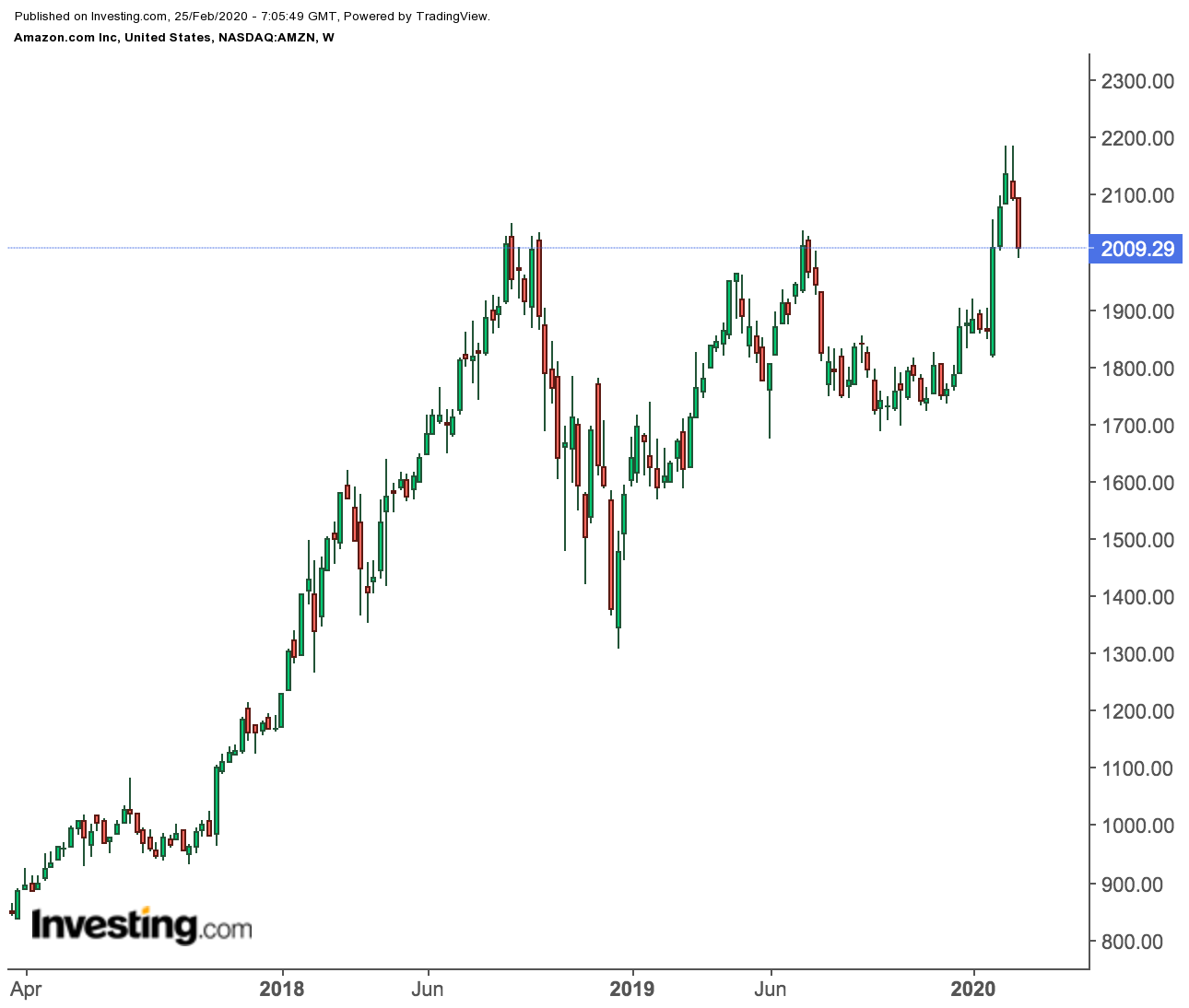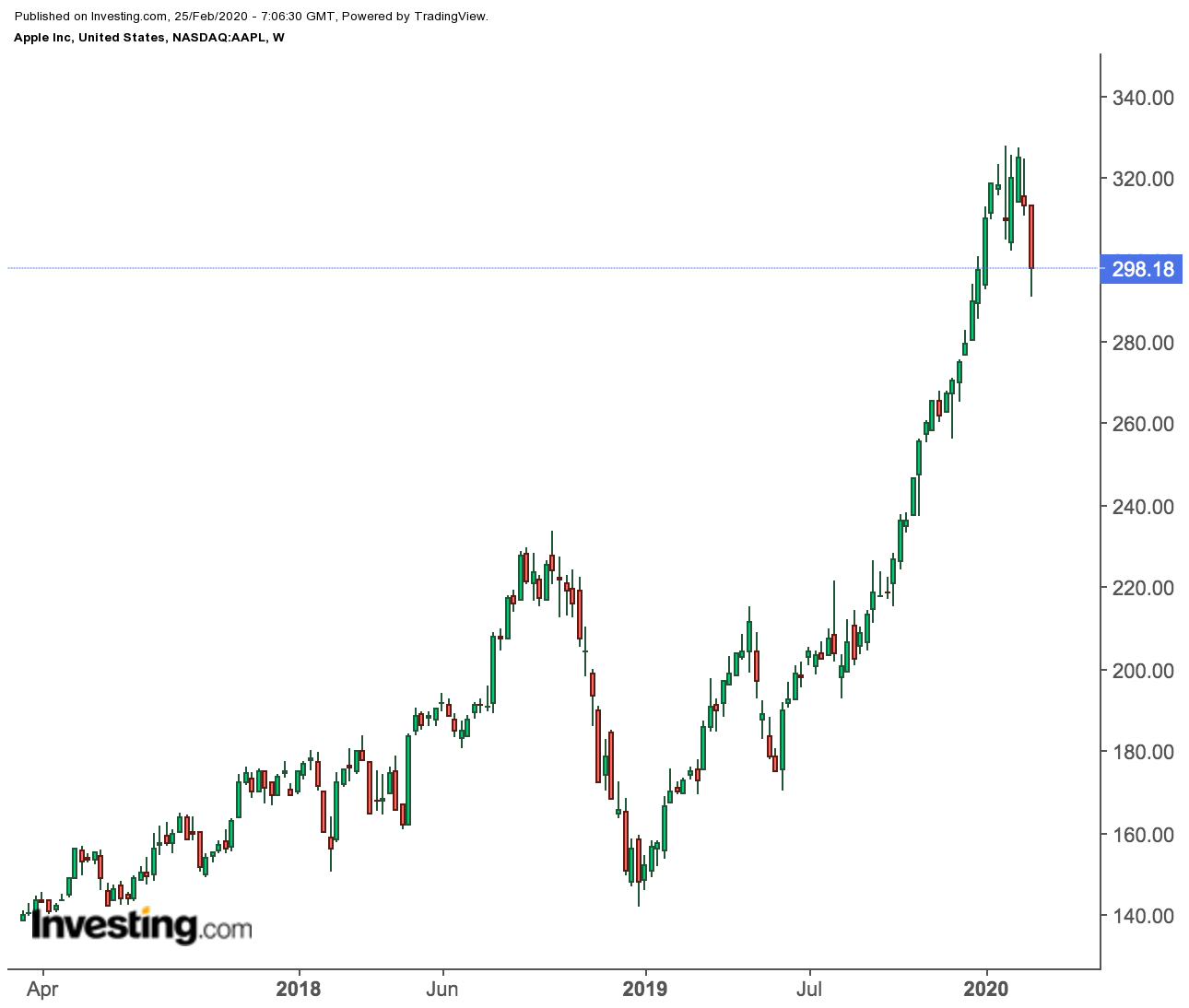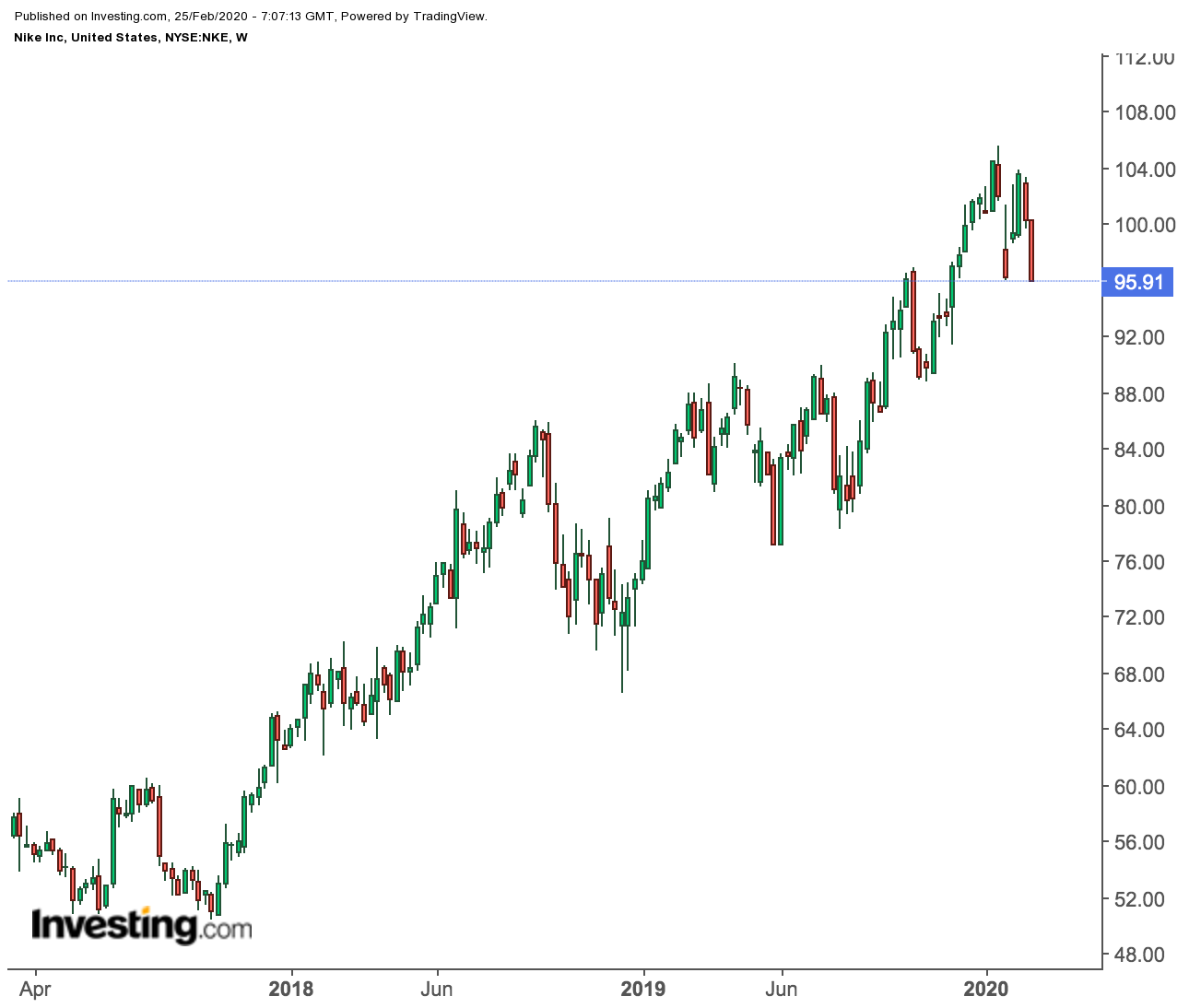A sudden surge outside of China in the coronavirus outbreak is hitting almost every sector in the stock market. As investors rush to sell risky assets, it’s important to understand which companies are more vulnerable to the supply disruptions this deadly disease is causing for companies that source components or products in China.
At the top of this list are the giant retailers, manufacturers of industrial goods and some of the U.S. technology companies which rely on Chinese imports and/or the country's vast consumer market for their products.
China represented one-fifth of overall U.S. imports in 2018, according to the U.S. Trade Representative’s Office. Furniture, toys, sports equipment and plastics rank among the top imported categories, according to the USTR.
Below is a short-list of three U.S.-based mega stocks from the different sectors that are likely to suffer more than others if this sell-off in stocks accelerates and snowballs into something bigger.
1. Amazon.com
The shares of the largest e-commerce retailer in the U.S., Amazon.com Inc (NASDAQ:AMZN) plunged more than 5% on Monday, making it one of the worst-hit stocks among the group of top tech companies. The biggest concern for Amazon investors is that the retailer could face a shortage of supplies if businesses in China don't resume their normal operations soon.
The mega-retailer is likely to experience this potential disruption in product supply earlier than other retailers because of its “lean” inventory management system. In good times, this system allows the internet company to run more efficiently because it helps free up more capital that would otherwise be sunk in products waiting to be sold.
“This is a cost to pay for the efficiency that a just-in-time supply chain gets you,” said Guru Hariharan, a former Amazon employee and the founder of CommerceIQ, in a recent report in the New York Times.
The seriousness of the coronavirus threat to Amazon can be gauged by the impact of disruptions to the company’s massive network of third-party merchants who use its online marketplace to sell their products. These sellers mostly rely on China for goods such as baby toys, pet carriers and crayons. Such products account for about 60% of Amazon sales.
After its 4% decline yesterday, to $2009.29, Amazon is still up more than 8% for the year and 23% for the last 12 months.
2. Apple
The iPhone maker, Apple Inc (NASDAQ:AAPL), was the first among the top tech companies to warn investors that its sales are getting hit by the spread of virus and it won’t be able to meet the sales target it has set for the current quarter.
China is one of the Cupertino, CA-based company's largest markets, which brought in nearly $52 billion in sales in the most recent fiscal year. Apple said last week that production of the iPhone—which generates most of the company's revenue—is temporarily constrained due to virus-related issues. “Work is starting to resume around the country, but we are experiencing a slower return to normal conditions than we had anticipated,” the company said in a statement.
Apple had been planning to start producing a new, low-cost iPhone in February and making it available for sale as early as March, Bloomberg News reported. It’s unclear how the coronavirus has impacted those plans.
“We think revenue has merely been delayed versus lost and our FY20 estimates are unchanged — though we concede this is a fluid situation and revenues could be pushed out further into the December quarter,” Evercore ISI analyst Amit Daryanani wrote in a note over the weekend as he lowered his March-quarter revenue estimate by about $8.6 billion.
Apple tumbled about 5% yesterday, to close at $298.14, extending its five-day losses to 7%. During the same period the Dow Jones Industrial Average has dropped 4%.
3. Nike
Sportswear giant, Nike Inc (NYSE:NKE) is another mega cap consumer stock that's particularly vulnerable as the coronavirus continues to spread globally. Earlier this month, Nike said that about half of its stores in China have been closed due to the coronavirus and that it expects the outbreak to have a “material impact” on its China operations.
Despite the company’s consistent efforts to diversify its production away from China, the country is still the key manufacturing hub for Nike products: about 23% of Nike's footwear and 27% of its apparel is manufactured in the virus-hit country.
China has also been Nike’s biggest growth area in recent years. The company generated $6.2 billion in sales in the region last year, up from $2.6 billion in 2014. The area’s share of overall Nike revenue nearly doubled in that same period.
After surging to a record high of $105.62 in January, Nike has since fallen about 9%. The shares dropped 4.3% on Monday to close at $95.91.
